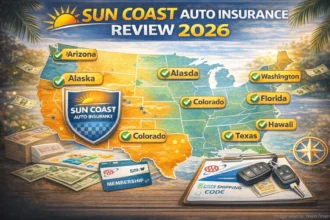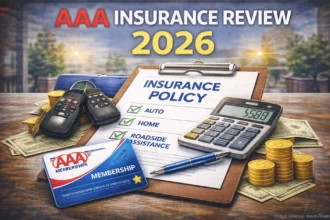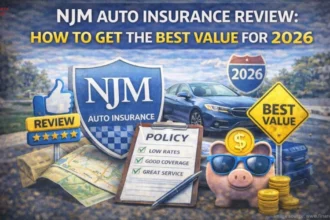Financial literacy is crucial for individuals to make informed decisions about their money and achieve long-term financial stability. In Atlanta, numerous organizations offer valuable resources to help people improve their financial knowledge and skills. This comprehensive guide will explore the various financial literacy resources available in the city, providing you with the tools and information you need to take control of your finances.
What is Financial Literacy?

Financial literacy refers to the ability to understand and effectively use various financial skills, including personal financial management, budgeting, and investing. It involves making informed decisions about earning, saving, spending, borrowing, and investing money. Individuals with strong financial literacy skills are better equipped to manage their finances, achieve their financial goals, and avoid financial pitfalls.
Why is Financial Literacy Important?
Financial literacy is essential for several reasons:
- Improved Money Management: Understanding financial concepts enables individuals to make better decisions about budgeting, saving, and spending, which can lead to improved financial stability and security.
- Debt Avoidance: Financial literacy educates individuals about the risks associated with excessive debt and provides strategies for responsible borrowing and debt management.
- Retirement Planning: Understanding investment options and retirement savings plans enables individuals to make informed decisions about their long-term financial future.
- Fraud Prevention: Financial literacy equips individuals with the knowledge to recognize and avoid financial scams and fraudulent activities.
- Wealth Building: Understanding investment strategies and opportunities can help individuals build wealth and achieve their financial goals.
Financial Literacy Resources in Atlanta
Operation HOPE, Inc.
Operation HOPE is a renowned nonprofit organization that aims to disrupt poverty and empower low-to-moderate-income individuals and communities. They offer a range of programs focused on credit and money management, homeownership, small business development, employee financial wellness, youth financial literacy, entrepreneurship, job skills, and financial distress recovery.
Website: operationhope.org
GreenPath Financial Wellness
GreenPath Financial Wellness is a trusted resource that provides comprehensive financial wellness education and counseling services. Their website offers valuable articles, webinars, classes, budgeting tips, frequently asked questions, and online calculator tools for car loans, retirement planning, emergency savings, and home budget analysis.
Website: greenpath.com
Federal Reserve Education Resources
The Board of Governors of the Federal Reserve System provides educational materials for consumers and teachers. Their website offers resources to educate students of all ages on various financial topics, including personal finance, economics, and the role of the Federal Reserve System.
Website: federalreserveeducation.org
Consumer Financial Protection Bureau (CFPB)
The CFPB maintains a robust consumer resource website with educational tools covering a wide range of topics, such as buying a house, paying for college, planning for retirement, and managing money. The website also offers answers to hundreds of financial questions related to auto loans, credit cards, debt collection, mortgages, prepaid cards, and student loans.
Website: consumerfinance.gov
Robins Financial Credit Union
Robins Financial Credit Union offers several financial literacy initiatives, including:
- It’s A Money Thing Academy: A free financial education course for young adults to learn money management skills.
- Scholarship Program: A $2,000 scholarship for high school seniors attending college or university in Georgia, requiring an essay on financial responsibility.
- Good Grades Program: A program that awards three students with $500 for maintaining good grades during a semester.
- Youth Accounts: Specialized accounts like Rockin’ Robin, My$ta$h, and MyMoney MyWay® designed to teach financial habits to children and young adults.
Website: robinsfcu.org
MidSouth Community Federal Credit Union
MidSouth Community Federal Credit Union provides financial literacy resources for children, including:
- Educational Apps: Recommendations for apps like Bankaroo, FamZoo, Piggybot, Savings Spree, The Game of Life, and Visa Financial Football to teach money management skills through fun and engaging activities.
Website: midsouthfcu.org
Cadence Bank
Cadence Bank offers valuable advice on how to talk to children about money based on their age group. Their website provides age-specific suggestions on topics such as earning money, budgeting, credit cards, taxes, and investing.
Website: cadencebank.com
Wells Fargo Hands on Banking
Wells Fargo’s Hands on Banking program is a comprehensive financial education resource that covers topics like credit and loans, debt, money management, retirement, small business, and taxes. The program offers resources for different phases of an individual’s financial journey, from getting started to planning for the future.
Website: handsonbanking.org
FDIC Money Smart
The FDIC’s Money Smart financial education program is designed to help people of all ages enhance their financial skills and create positive banking relationships. The program offers various tools and strategies for teaching and learning financial concepts.
Website: fdic.gov/moneysmart
Conclusion
Financial literacy is a vital skill that empowers individuals to make informed decisions about their finances and achieve long-term financial stability. Atlanta offers a wealth of resources from various organizations, including nonprofit groups, financial institutions, and government agencies. By taking advantage of these resources, individuals can enhance their financial knowledge, develop essential money management skills, and gain the confidence to navigate their financial journey successfully. Whether you’re a student, a working professional, or a retiree, there are resources available to help you achieve your financial goals and secure a brighter financial future.
Frequently Asked Questions (FAQs)
What are the benefits of improving financial literacy?
Improving financial literacy can lead to better money management skills, debt avoidance, successful retirement planning, fraud prevention, and wealth-building opportunities.
At what age should financial literacy education begin?
Financial literacy education should start at an early age, as it helps establish healthy money habits and instill the importance of responsible financial decision-making from a young age.
Are financial literacy resources available for specific age groups or communities?
Yes, many organizations offer targeted financial literacy resources for different age groups, from children to older adults, as well as specific communities or demographics.
Can financial literacy resources help with specific financial goals or challenges?
Absolutely. Financial literacy resources cover a wide range of topics, including budgeting, debt management, saving for retirement, investing, buying a home, and more. These resources can provide valuable guidance and strategies to help individuals achieve their specific financial goals or overcome financial challenges.
Are financial literacy resources available in different languages or formats?
Many organizations strive to make financial literacy resources accessible to diverse audiences by providing materials in multiple languages or formats, such as online resources, workshops, one-on-one counseling, or printed materials.
In another related article, Top Mortgage Lenders in Atlanta for First-Time Homebuyers





